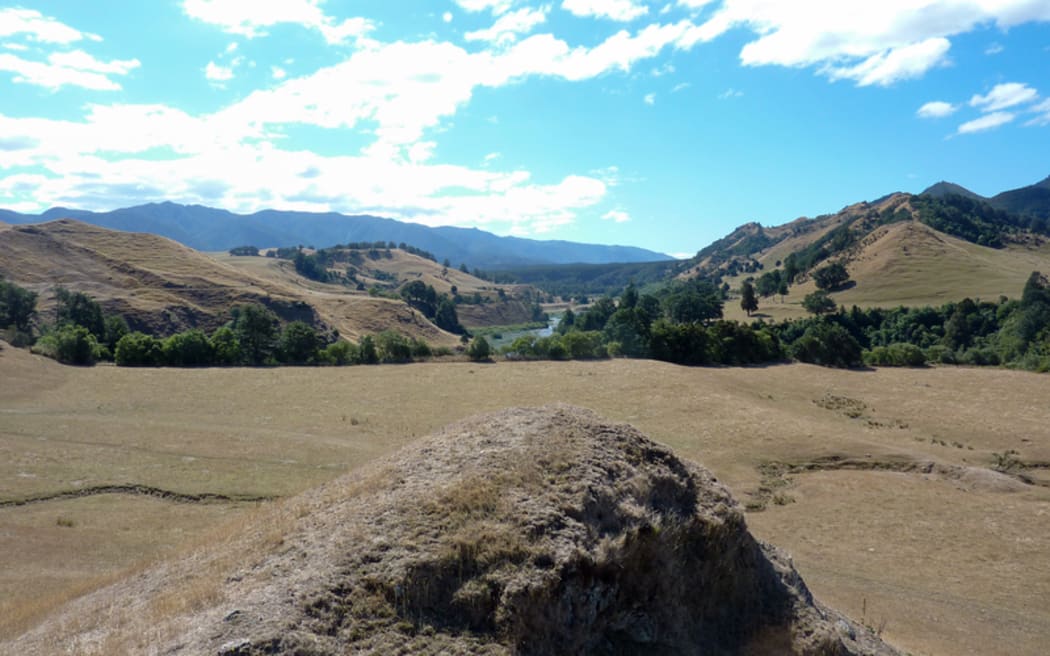Central Hawke's Bay residents running out of water are being reassured applications from eight big farms to draw more water from a dwindling acquifer is not yet a done deal.

With the Rutaniwha dam scheme shelved the council admits the district's growth opportunities are limited. Photo: SUPPLIED / Isthmus Group
The reassurance was given by the Hawke's Bay Regional Council at a public meeting in Waipawa last night, where it was standing room only.
But with nearly all water consents already fully allocated, and the Rutaniwha dam scheme shelved, the council admitted the district's growth opportunities were limited until they could come up an alternative plan.
Central Hawke's Bay Mayor Alex Walker told the 300-strong crowd the district's water security had reached a "pinch-point."
"We want the river to be healthy, we want to run out businesses, we want to irrigate our farms, we need to drink water."
"But solving this now is ultimately impossible, there is not a short-term solution to do this.
That was because the Ruataniwha acquifer underneath Central Hawke's Bay, which provided nearly all the district's water, as well as feeding the Waipawa and Tukituki rivers had been falling for the last twenty years.
After two very dry months some businesses and farmers were already having to ration supplies and they faced even more restrictions if river levels dropped further this summer.
Some residents, who have had to dig deeper bores or get new pumps just to fill their taps, blamed the big irrigators who had consents to draw 28 million cubic metres of water from the acquirer each year.
Many at the meeting were worried what might happen if another eight big farms were allowed to take another 15 million cubic metres of water, known as 'Tranche 2'.
Hawke's Bay Regional Council regulation manager Liz Lambert sought to allay concerns.
She acknowledged the Tranche 2 applications had caused "angst" in the community but said it was "not a done deal."
"We are obliged to receive applications for it -and we have received applications for more than the 15 million cubic metres."
Those applications were on hold pending scientific data from the applicants, she said.
"We need to be perfectly satisfied about the effect of those takes on rivers, streams and neighbours," Ms Lambert said.
New minimum river flows set to come into force in 2023 would put even more pressure on water users, HBRC chief executive James Palmer said.
The district would have to eventually transition to more water efficient agriculture to cope, he said.
"A transition that could take decades."
Central Hawke's Bay Mayor Alex Walker said those constraints could also present an opportunity for farmers and businesses to innovate.
"We have no other way to deal with it other than to get smart."
Two new monitoring bores would be drilled by HBRC this summer that would allow water levels in the acquifer to be monitored in real time.
A feasibility study into Managed Acquifer Recharge would be completed by April, James Palmer said.

